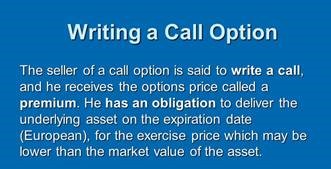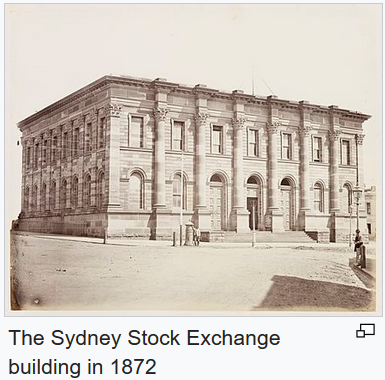Smart money and dumb money
I have never liked the expression “Smart money.” It is demeaning to individual investors and used by commentators to imply they are smart and the rest of you aren’t. But a lot of supposedly smart professionals do some very dumb things, and a lot of non-professional investors, often our clients, do some very clever things.
There are only a few “Smart Money” activities, inaccessible to the mortal investor, some of which are the domain of substantial funds management institutions, another only available to the very wealthy and another which is a myth.
Access to IPOs
Being given larger allocations of hot new issues is something only the big institutions get, and they get it because the brokers controlling the issue want to suck up to them to get their secondary market business. Read the monthly reports of some of the boutique fund managers, and you will come to realise that this is a significant source of outperformance for some small and midcap managed funds.
Individuals can theoretically get access to this sort of action by signing up as a sophisticated investor with a broker. They are called A s.708 investors because of s.708 of the Corporations Law. Under this section, if investors meet the sophisticated investor hurdles, they are deemed by the corporation's law to be able to evaluate offers of securities (shares) and financial products without needing the usual protection of a regulated disclosure document. In other words, brokers can sell them stuff more quickly, and with less disclosure under the core principles of caveat emptor, buyer beware. To qualify for your sophisticated investor status, you have to get a certificate from a qualified accountant certifying that you had a gross income of $250,000 or more in each of the previous two years or have net assets of at least $2.5 million. The certificate when you get it is valid for two years.
All very well, but you have to ask, why on earth would you want to qualify for a lack of protection from the corporations law, and why would you want to buy anything without a product disclosure statement? The answer, of course, is that the lower care duty owed to sophisticated investors enables brokers to offer a select group of investors ‘exclusive’ stock market deals that they are not allowed to offer to the unsophisticated investor, a process that often enrages the excluded masses.
So what’s the catch you ask? It’s pretty obvious. You may qualify as a sophisticated investor but are you qualified to be a sophisticated investor. When the only qualifying criteria are that you are rich, your sophisticated investor moniker can make you more of a target than a champion, and to qualify for the best placements; you are going to need a good (regular) rather than simply ‘sophisticated’ (cherry picking) relationship with your broker. Without that, you aren’t going to be at the top of the list. Caveat Emptor. That’s the catch. The buyer does have to be aware.
Inside information
There is a broker’s saying that “If you are not on the inside, you’re on the outside” and a lot of private investors think that this is how everybody else makes their money and some would tell you that the stock market is one big Machiavellian plot against them. But it’s not. On top of that let me tell you a story.
I once stood in a lift with a very experienced professional trader who overheard a couple of brokers talking about an inside tip. He piped up with the line “If I’d never been told any inside information, ever, I reckon I would be a million dollars better off.” During boom times there is a lot of self-serving information masquerading as inside information, designed to push a price up or down so the author of the misdirection can take advantage of it.
I’m sure inside information is around and good luck to those that have it. I’m sure you can be considered “Smart” if you can use it to make money, but it's not legal, and it's not commonplace in or out of the industry. The main misconception of those outside the industry is thinking everybody else has it. Quite simply, they don’t. That’s not the game.
Writing options
Some of the very wealthy investors do very little other than constantly write out of the money call options against large existing holdings in the big stocks. They do not write naked calls; they own the stocks. But this will only ever achieve incremental gains, a few percent maybe, over and above the total return of that stock. But if you are not very wealthy and don’t hold big stocks this is not for you. Yes, you will find some operators offering it as a way to get rich, but it's not, it’s a way for the rich to stay richer with very little risk. Try and do that from a low capital base writing naked calls and you will be paying a lot in fees and spread and will be taking a lot of risks. It's not going to make you rich; it is only going to make the provider rich, while you take all the risk.

And finally the other essential ingredient of a ‘Smart Money’ investor is, quite simply, this:

Being rich already
Wealth allows you to exercise the ultimate investment luxury, being patient. But you need to be really rich because it is only the really rich that can afford not to get excited when they make a large gain. The ‘poor,’ investor, on the other hand, cannot help but sell when they make a profit, it is the Achilles heel of all investors who are trying to make money rather than preserve it.
You can probably go back as I can, and list shareholdings that you fiddled with but should never, in hindsight, have sold. I once held a million Paladin shares at 1.6c. I doubled my money and sold them at 3.2c. They went to $10.80. That’s 10.8 million dollars I left on the table. And I can name another 5.85 million dollars I could have made in a variety of holdings if only, I had done absolutely nothing.
Another example of impatience getting the better of a host of professional investors was the ASX listing. All members of the ASX were given 166,000 shares on issue. So when the ASX was first quoted on the 14th October 1998 at 397c most of the previously dispassionate members of the stock exchange were gob smacked to work out they had just been handed $659,020, and they weren’t escrowed. They could sell immediately, and many did. On the first day, 6.5 million shares traded as around forty members sold out. In that first selling frenzy, the ASX hit the lowest price it ever traded at, 388c, on day one.
From there it just went up. Two months later on Christmas Day it had more than doubled to 848c. Now each member’s shares were worth $1.408m, and anyone who had sold them already had to spend Christmas explaining to their families how they had missed out on $10,000 a day thanks to their decision to sell on day one.
A year later the shares were worth $1.89m, and so it went on until the stock hit $61 on the 2nd January 2008 prior to the GFC. Still, it's all-time high. At that price, including another 702c of dividends paid out to that date, a membership of the stock exchange had turned into $11.29 million assuming, of course, the member hadn’t sold them. That was the peak. As of the time of writing 166,000 ASX shares are worth around fifty-seven dollars, and they are paying two dollars or around three hundred and thirty thousand dollars a year in dividends. The long and short of it is that any Member of the stock exchange that got gifted 166,000 shares did not have to work again, and all they had to, was nothing.
A lot of people have the impression that all stockbrokers are ‘rich’, but the reality is that only some stockbrokers are rich, and they are mostly rich, not because the investment markets are so lucrative, but because there was a moment in time back in 1998 when the value of 137 years worth of building an asset called “The stock exchange” (The Melbourne stock exchange was first formed in 1861), an asset that had passed from one member to the other up through the ages, often for no consideration, was crystallised and distributed to whoever happened to be a member at that moment in time.
But the only people that have taken advantage of that are the ASX Members that were wealthy enough to (1) not be impressed by $659,020 on day one, and (2) didn’t have a mortgage to pay off. To achieve that they had to be rich because the rest simply couldn’t sit still. And that’s the definition of ‘Smart money.’ It's just a lot of very rich people that can afford to do nothing, as many Members of the ASX, now do.
And that’s ‘Smart Money”, although the real quality of smart money is not that its ‘Smart,’ but that it's not ’Dumb.’ The ‘Dumb Money’ is a whole other list, for next week.
Marcus Padley is the author of the Marcus Today stock market newsletter. To sign up for a 14-day free trial please click here.
2 topics

